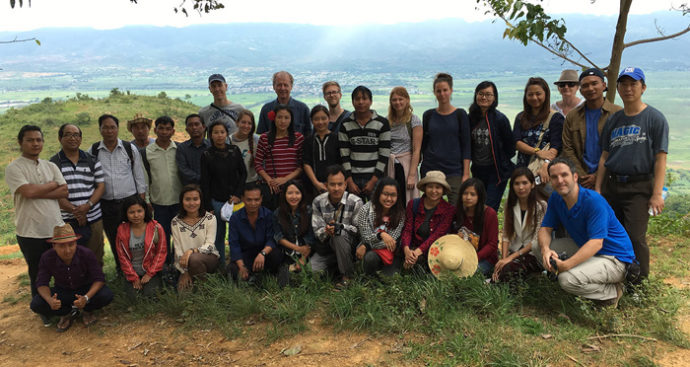18
2017
The Myanmar Institute for Integrated Development (MIID) Annual Planning Conference commenced with the arrival of teams from across Myanmar. Two days of travel for the Chin State team and one day of travel for the Yangon staff brought excited, if slightly weary travellers to Nyaungshwe Shan State, the entrance to Inlay Lake and tourist hub of the region.
The core ethos of MIID development practice: a people centred, bottom up approach, was presented to the team, travelling to six upland project villages near Heho on the first morning. Since 2014, MIID has been working in these villages to improve water availability, expand household incomes through a value chain approach, improve farming practices and train farmers to work more co-operatively. The work in this cluster of villages is funded largely by the EU and USAID in partnership with ICIMOD and Winrock International, and showcases to the Myanmar Government and NGO community an approach and package of practices that can be replicated in other upland communities in the country.
For many of the staff, this was their first time in Shan State, and was an excellent opportunity to exchange knowledge of development practise and project management with the Shan project staff. The day was concluded by a comprehensive presentation on the Shan State project by program manager David Abrahamson. The presentation consolidated the learning in the field of the day and provided an overview of the project objectives, challenges and successes. The team members were later able to discuss issues and questions across the various projects and pass on learning at the team dinner at Thankha Garden, a local restaurant which sources Inlay Lake produce and promotes local cuisines.
The second day provided the team with insight to the relation between traditional agriculture and small business with the rapidly emerging tourism on Inlay Lake, including small enterprise successes and areas for future development. The time on the lake included visits to temples, handicrafts, weavers, cigar makers and fabric production. Attention was drawn to the many challenges and complexities of the area, from the extensive use of pesticides in Inlay Lake’s famous floating tomato and gourd gardens, to the increasing growth of waste and pollution on the shores and islands of the lake itself.
The conference provided the MIID team the opportunity to expand and foster inter-project relationships and encouraging knowledge sharing between MIID departments in Shan State, Chin State and Yangon. The ability to share learning and discuss aspirations of future projects with continued focus on MIID’s trademark of people centred development was facilitated throughout the conference.

